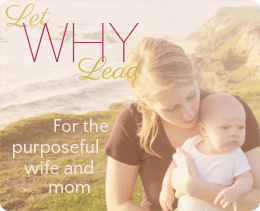 I had the opportunity to host our Relief Society book group this month, and the book I chose to read and discuss with the ladies was this lovely little book by Charles Dickens, The Life of Our Lord. It really is just that -- lovely. It's not a typical Dickens novel (and I love Dickens); it was actually never intended to be published. He wrote it for his children, because, as he says in the first line of the book, "I am very anxious that you should know something about the History of Jesus Christ." And so begins this atypically casual retelling of the Book of Luke from a gifted-writer father to his children. It's a short read, about 120 pages, very smooth and easy, and could be read with children (a few spots to leave out perhaps, like the death of Judas ... surprisingly gory considering Dickens did such a nice job throughout the rest of the book of softening some of the harsher New Testament stories and terminology). As I researched the book online, I found some exquisite illustrated versions out there -- my favorite were the ones with the etchings/lithograph illustrations and scroll work around each individual page -- what a precious book to have in your library!
I had the opportunity to host our Relief Society book group this month, and the book I chose to read and discuss with the ladies was this lovely little book by Charles Dickens, The Life of Our Lord. It really is just that -- lovely. It's not a typical Dickens novel (and I love Dickens); it was actually never intended to be published. He wrote it for his children, because, as he says in the first line of the book, "I am very anxious that you should know something about the History of Jesus Christ." And so begins this atypically casual retelling of the Book of Luke from a gifted-writer father to his children. It's a short read, about 120 pages, very smooth and easy, and could be read with children (a few spots to leave out perhaps, like the death of Judas ... surprisingly gory considering Dickens did such a nice job throughout the rest of the book of softening some of the harsher New Testament stories and terminology). As I researched the book online, I found some exquisite illustrated versions out there -- my favorite were the ones with the etchings/lithograph illustrations and scroll work around each individual page -- what a precious book to have in your library!Lovely
 I had the opportunity to host our Relief Society book group this month, and the book I chose to read and discuss with the ladies was this lovely little book by Charles Dickens, The Life of Our Lord. It really is just that -- lovely. It's not a typical Dickens novel (and I love Dickens); it was actually never intended to be published. He wrote it for his children, because, as he says in the first line of the book, "I am very anxious that you should know something about the History of Jesus Christ." And so begins this atypically casual retelling of the Book of Luke from a gifted-writer father to his children. It's a short read, about 120 pages, very smooth and easy, and could be read with children (a few spots to leave out perhaps, like the death of Judas ... surprisingly gory considering Dickens did such a nice job throughout the rest of the book of softening some of the harsher New Testament stories and terminology). As I researched the book online, I found some exquisite illustrated versions out there -- my favorite were the ones with the etchings/lithograph illustrations and scroll work around each individual page -- what a precious book to have in your library!
I had the opportunity to host our Relief Society book group this month, and the book I chose to read and discuss with the ladies was this lovely little book by Charles Dickens, The Life of Our Lord. It really is just that -- lovely. It's not a typical Dickens novel (and I love Dickens); it was actually never intended to be published. He wrote it for his children, because, as he says in the first line of the book, "I am very anxious that you should know something about the History of Jesus Christ." And so begins this atypically casual retelling of the Book of Luke from a gifted-writer father to his children. It's a short read, about 120 pages, very smooth and easy, and could be read with children (a few spots to leave out perhaps, like the death of Judas ... surprisingly gory considering Dickens did such a nice job throughout the rest of the book of softening some of the harsher New Testament stories and terminology). As I researched the book online, I found some exquisite illustrated versions out there -- my favorite were the ones with the etchings/lithograph illustrations and scroll work around each individual page -- what a precious book to have in your library!Before I tucked this one back in its place on my shelf, I thought I would share a couple favorite passages. One was brought up in our discussion last night, and as my friend re-read it, I was touched again by the simple tenderness of Dickens' several "asides" in the story of the Savior. This was one of the sweetest examples:
"Jesus Christ chose twelve poor men to be His companions. These are called the Apostles or Disciples, and He chose them from among poor men, in order that the poor might know -- always after that, in all the years to come -- that Heaven was made for them as well as for the rich, and that God makes no difference between those who wear good clothes and those who go barefoot and in rags. The most miserable, the most ugly, deformed, wretched creatures that live, will be bright Angels in Heaven if they are good here on earth. Never forget this, when you are grown up. Never be proud or unkind, my dears, to any poor man, woman, or child. If they are bad, think that they would have been better if they had had kind friends, and good homes, and had been better taught. So, always try to make them better by kind persuading words; and always try to teach them and relieve them if you can. And when people speak ill of the poor and miserable, think how Jesus Christ went among them, and taught them, and thought them worthy of His care. And always pity them yourselves, and think as well of them as you can."
The book ends with Dickens' "definition" of Christianity. Say what you will about Dickens' personal religious beliefs and whether or not he truly understood the Divinity of the Savior and His role as our Redeemer, but I think he's pretty spot on when it comes to Christianity and being Christlike. This paragraph seemed like the perfect ending to such a charming, good and pure book:
"Remember! -- It is Christianity TO DO GOOD always -- even to those who do evil to us. It is Christianity to love our neighbors as ourself, and to do to all men as we would have them do to us. It is Christianity to be gentle, merciful, and forgiving, and to keep those qualities quiet in our own hearts, and never make a boast of them, or of our prayers or of our love of God, but always to show that we love Him by humbly trying to do right in everything. If we do this, wand remember the life and lessons of Our Lord Jesus Christ, and try to act up to them, we may confidently hope that God will forgive us our sins and mistakes, and enable us to live and die in peace."
I'm grateful for the dear friend who gave me this book as a Christmas gift years ago and grateful I finally took the opportunity to read it. It was even more meaningful to discuss it with some great women in my ward. I recommend it simply because it's lovely and plain. The gentle reminders of Christianity and the simple retelling of Christ's life made it such a nice first-read of the new year, hopefully to be followed by more lovely and uplifting literature. Leave me your recommendations if you've read something lovely recently.
Subscribe to:
Post Comments (Atom)

























3 comments:
Well I guess that book will be on my to-read list now. It sounds, as you said, lovely.
Sounds great! I'll be adding that to my to-read list!
I have always wanted to read this book. I think I will bump it up on my list!
Post a Comment